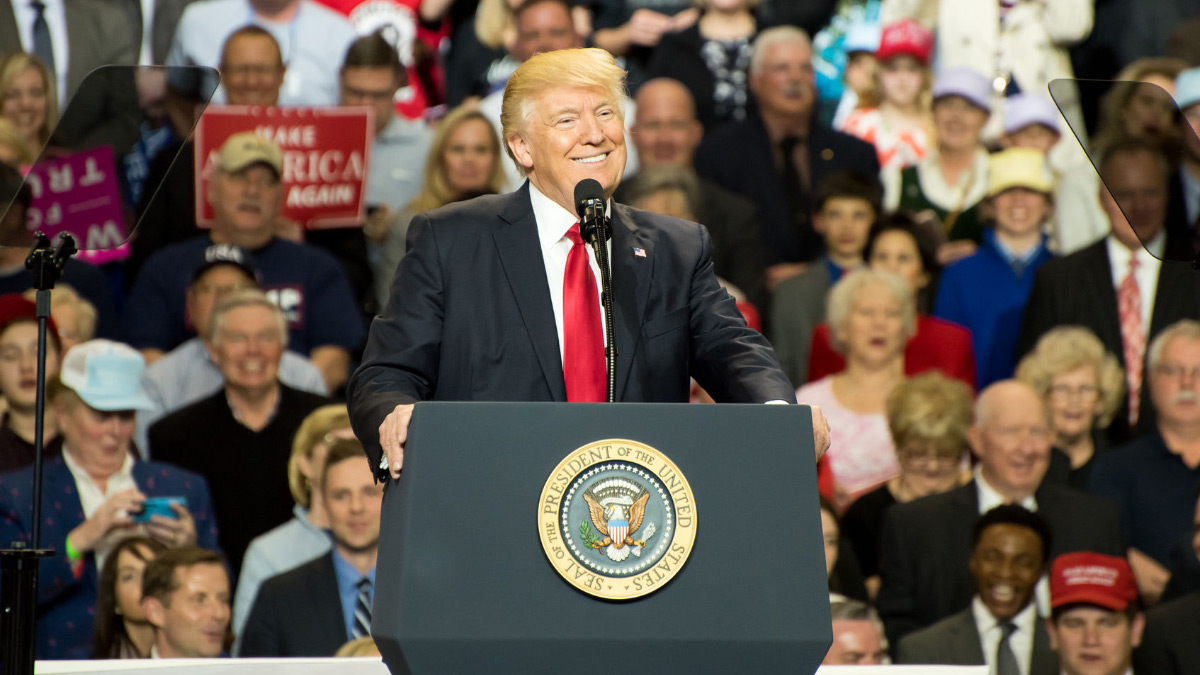President Trump could win. Or he could lose. By no means does anyone know for sure. I base this uncertainty on six dimensions.
Dimension 1: Immigration
Democrats clearly seem to be implying: “Let all illegal immigrants into the United States. Then give them free health care, including the 11 million illegal immigrants presently in the country.” Costs to taxpayers would be beyond staggering. Trump, as we all know, opposes such actions. We can assume the public is divided. The unknown is: No one can divine the answer.
Dimension 2: Trump’s supporters
Hillary Clinton found out the hard way that it was political suicide to attack Trump’s supporters by calling them “deplorables.” Such an insult mobilized a reactionary backlash in spades. Yet all the time we hear of people being chastised simply for wearing a MAGA hat. That’s an attack on the voters themselves—never a wise idea.
Caitlin Flanagan made this same point in the May 2017 issue of The Atlantic, a left-leaning cerebral magazine. She knew better, and her title said it all: “How Late-night Comedy Fueled the Rise of Trump.”
Dimension 3: The silent majority
I live now in Oakland, California, which is consumed by liberalism. But I lived for decades in the Midwest and know that such one-sided consumption does not triumph there.
Today, the print media, TV news reporters, universities, public educators, Hollywood, the entertainment industries all lean left. It’s a free country, and private enterprises can lean anyway they wish. But the voting public doesn’t have to agree with them—and can react against their politics.
Dimension 4: Trump’s character
There may not be a single person in the United States, including Republicans, who is not in some degree critical of Trump’s character. But as one writer put it, “Trump is crazy, but his opponents are crazier.”
We can draw up a long list of negative adjectives about him, but we recall that the hubris he exercises now was also exercised when he ran in 2016. He displayed his self-love endlessly during that campaign—maybe even more than he does now.
Dimension 5: The economy
The national economy is in terrific shape, and the stock market is through the ceiling. Employment of minorities is higher than ever.
Politics cannot make the world perfect—better, yes, but not perfect. That’s why the framers of the Constitution wrote that it aimed at creating “a more perfect union” not a perfect one. The union could be made better still, that’s for sure. Right now, however, I personally do not think much of either party in that regard.
Dimension 6: Polling numbers
At present President Trump polls favorably at some 44 percent. That would suggest he can’t win in 2020. Maybe the polls are not accurate. Some Democratic candidates might rank higher, but once the final Democratic candidate is selected and the campaign with Trump begins, public scrutiny of the Democrat will begin in concentrated force. That’s when poll numbers could begin to rise—or fall.
The Democratic candidate will have to explain to the public his or her position on subsidies to all illegal immigrants—those already here and those yet to come to the country. That candidate will also have to explain in detail his or her position on Medicare for All, including illegal immigrants, and his or her position on the elimination of private health insurance for some 200,000 million Americans. He or she might also have to explain the Green New Deal.
I am fully aware that a very long critical paper could be written about President Trump’s policies; day in and day out, the media are reciting of those criticisms. And I really do not know if Trump will win, but he could.








